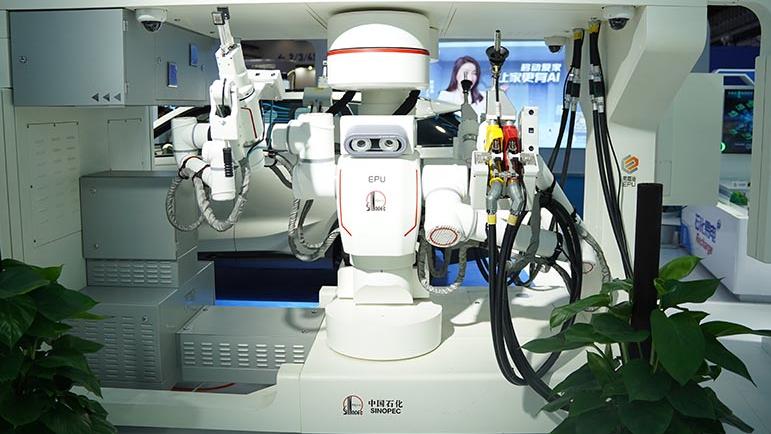Chinese researchers unlock new path for cartilage repair with magnetoelectric hydrogel
LANZHOU, April 17 (Xinhua) -- Chinese researchers have made new progress in defective cartilage repair with the development of an implantable magnetoelectric bionic cartilage hydrogel, offering promising solutions for the complex challenges of cartilage repair for both patients and medical professionals, according to Lanzhou University.
Independently developed by the university's researchers, the new study expands the application of piezoelectric and magnetoelectric materials in cartilage repair.
It also presents a novel therapeutic approach for accelerating the healing of defective cartilage and promoting the regeneration of hyaline cartilage. The findings of the study have been published in the journal Advanced Materials.
"Cartilage-related diseases are particularly challenging due to the avascular nature, low cell density, and slow matrix turnover of articular cartilage, which limit its capacity for self-repair," said Fan Zengjie, professor at the university's School/Hospital of Stomatology, who is the leader of the study.
Conventional clinical interventions typically fail to produce satisfactory outcomes and may lead to complications, making innovative solutions in cartilage repair crucial.
"Hydrogels are considered promising candidate materials for cartilage tissue engineering due to their ability to mimic the physicochemical environments conducive to cartilage regeneration," Fan said.
Researchers have been focusing on strategically enhancing hydrogels with appropriate therapeutic strategies, including biological, chemical and physical approaches.
Inspired by pulsed electromagnetic fields and magnetoelectric materials, the team of researchers created an implantable magnetoelectric bionic cartilage hydrogel to complement in situ electromagnetic stimulation.
They designed a type of hydrogel that can be activated by gentle joint motion, generating a piezoelectric response that triggers the magnetoelectric-coupled cyclic transformation.
This integration fully internalizes electromagnetic coupling induction into the bionic cartilage hydrogel, thus enhancing restorative efficacy, according to Fan.
This study expands the application of piezoelectric and magnetoelectric materials in cartilage regeneration and opens a novel therapeutic avenue for promoting in situ defective cartilage regeneration and improving hyaline cartilage repair, he explained.
The new findings have laid a foundation for future clinical translation, offering fresh research perspectives for scholars in harnessing endogenous electromagnetic effects and advancing biomimetic hydrogel development, according to the study.
Photos
 Ethnic fashion show held in Dali, SW China's Yunnan
Ethnic fashion show held in Dali, SW China's Yunnan 5th China International Consumer Products Expo showcases China's thriving 'beauty economy'
5th China International Consumer Products Expo showcases China's thriving 'beauty economy' Cutting-edge tech products, AI shine at 5th China International Consumer Products Expo
Cutting-edge tech products, AI shine at 5th China International Consumer Products Expo A glimpse of global premium goods at 5th China International Consumer Products Expo
A glimpse of global premium goods at 5th China International Consumer Products Expo
Related Stories
- Chinese researchers develop smart wearable device to aid the blind
- Chinese doctors implant world's smallest artificial heart in 7-year-old boy
- Construction starts on China’s first comprehensive BCI clinical ward
- New approach promising for reversing photoaging wrinkles
- Chinese company produces life-saving blood protein from rice
Copyright © 2025 People's Daily Online. All Rights Reserved.





